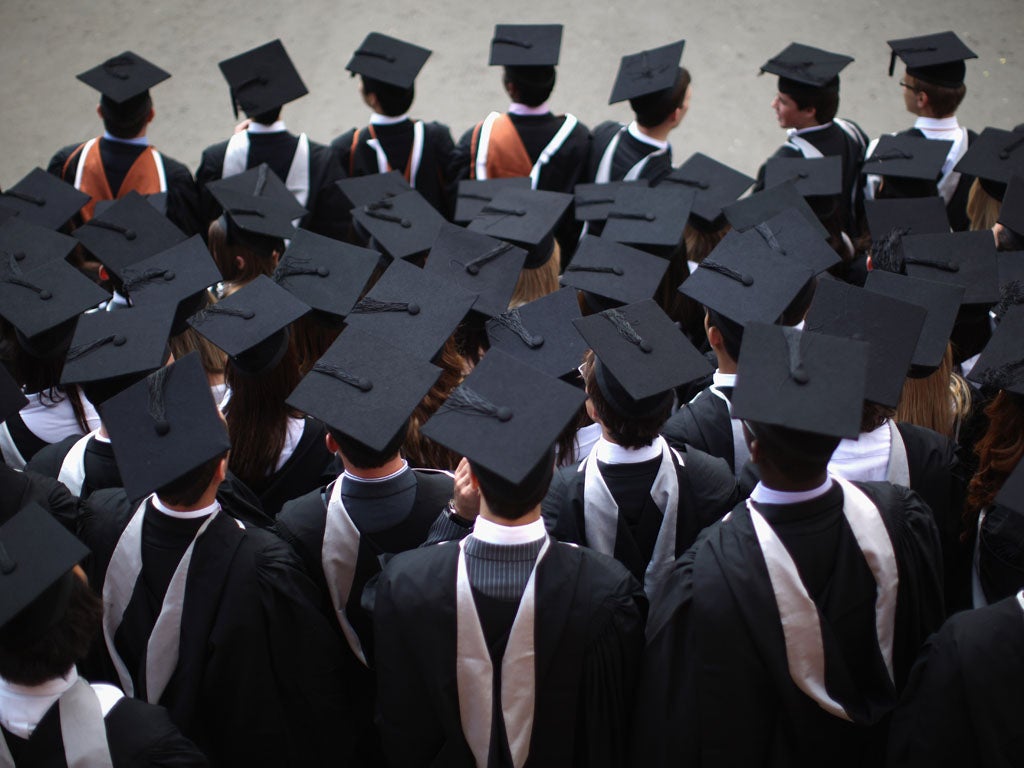You don’t have to be weird to get a First at university...
We love the idea that the degree system misses our unique gifts

Like the divisions that organise our football teams, the divisions that organise our degree system are deeply misleading to the uninitiated.
League Two doesn’t sound too shabby, but actually it’s the lowest tier in the professional game; the name of an ordinary degree seems to imply it’s perfectly all right, when actually it’s a complete catastrophe. Then there are the colloquialisms that decorate the formal terms, from the pleasant idea of the Third as a “gentleman’s degree” to the high honour of a “congratulatory” First, and most of all the endearing rhyming slang that reconfigures the classes as Geoffs, Attilas, Desmonds and Thoras.
It all lends weight to the idea that degree classifications are chaotic, unreliable groupings which tell you less about a person’s intellectual capacity than they do about their outlook on life. And yesterday, in an article in The Times, Robert Winston seemed to take the same view. Firsts, he said, were far from the best evidence that someone would make a good addition to his laboratory. “I would rather have young people around me who developed other interests at university.”
Lord Winston – who took a pass-fail medical degree, alas, barring us from an analysis of his own outside interests – has since disowned that argument. Whatever he meant, his phrasing is less interesting than the satisfaction with which his words were greeted. We love this idea, as we love the fact that WH Auden and Christopher Hitchens both got Thirds. The system, it suggests, misses our gifts. Lord Winston was finally speaking the truth we have all long known: those useless brainiacs couldn’t organise a piss-up in a brewery, or an explosion in a laboratory.
But apply a bit of Lord Winston’s own rigour to that contention, which relies on the idea that those with Firsts worked so hard they didn’t have time for a life, whereas those with 2:1s chose to cultivate their friendships and hobbies instead. It’s a pleasing idea for the 85 per cent of graduates who don’t get a top-class degree, for obvious reasons, but isn’t it also a bit bonkers?
How, for example, does it account for the annoying few who were so clever that they got a First despite spending every evening in the bar, or for the intellectually limited who eschewed all fun so that they might avoid a dreaded Desmond? It seems wildly unfair to assume that the cleverest are also the weird ones. The democratisation of the public sphere, so that no one bats an eyelid when Carol Vorderman (a Thora, sad to say) gets put in charge of a maths taskforce, is fine up to a point. But let’s draw a line when it comes to the laboratory. If I’m wrong, consider this: if they really are all a bunch of weirdos, where the hell else are we going to put them?
Twitter: @archiebland
Join our commenting forum
Join thought-provoking conversations, follow other Independent readers and see their replies
Comments
Bookmark popover
Removed from bookmarks